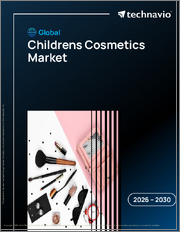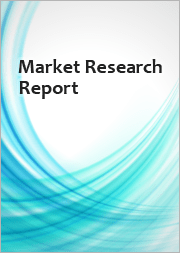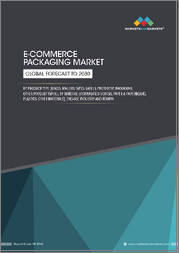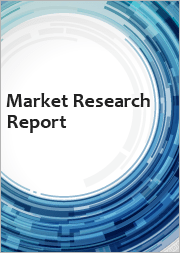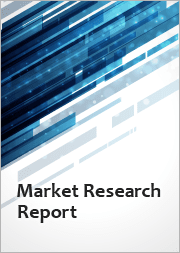
|
시장보고서
상품코드
1862343
폴리소르베이트 : 시장 점유율과 순위, 전체 판매량 및 수요 예측(2025-2031년)Polysorbate - Global Market Share and Ranking, Overall Sales and Demand Forecast 2025-2031 |
||||||
폴리소르베이트 시장 규모는 2024년에 5,384만 달러로 평가되었고, 2025-2031년의 예측 기간에 CAGR 4.1%로 성장을 지속하여, 2031년까지 7,071만 달러에 달할 것으로 예측됩니다.
본 보고서는 폴리솔베이트에 대한 최근 관세 조정과 국제적인 전략적 대응 조치에 대해 국경 간 산업 발자국, 자본 배분 패턴, 지역 경제의 상호 의존성, 공급망 재편 등의 관점에서 종합적인 평가를 제공합니다.
폴리소르베이트는 폴리옥시에틸렌 소르비탄과 지방산(주로 올레산 또는 라우르산)의 에스테르화를 통해 얻은 비이온성 계면활성제 및 유화제 그룹입니다. 유중수형 에멀젼의 안정화, 유효성분의 용해도 향상, 의약품 제제의 생체 이용률 향상에 널리 이용되고 있습니다. 대표적인 상용 등급은 폴리소르베이트 20, 40, 60, 80이 있으며, 각각 다른 친수성 친유성 균형(HLB) 값을 가지며, 특정 용도에 적합합니다. 2024년 세계 생산량은 약 1만 8,370톤, 세계 평균 시장 가격은 톤당 약 2,931달러를 기록할 것으로 예측됩니다. 의약품, 식음료, 화장품, 산업용 등 다양한 분야에서 일관된 성능, 규제 준수, 다기능성이 중요한 분야에서 활용되고 있습니다.
폴리소르베이트의 업스트림 공급은 소르비톨, 지방산(올레산, 스테아르산, 라우르산), 에틸렌옥사이드 등 주요 원료에 의존하고 있습니다. 제조업체는 이러한 원료를 에스테르화 및 에톡실화 공정으로 통합하여 특수 등급을 생산하고 있습니다. 업계 선두 제조업체로는 크로다, 화왕, 세픽, 오레온, 광동화납화학, 장인화원화학, 모히니 오가닉스, 밴티지 스페셜티 케미칼, 비스위트 케미컬즈 리미티드 등이 있습니다. 다운스트림에서는 제약회사(화이자, 노바티스, 로슈), 식음료 제조업체(네슬레, 유니레버, 펩시콜라), 퍼스널케어 브랜드(로레알, 프록터 앤 갬블, 에스티로더)가 주요 사용자로 꼽힙니다. 이 분야의 조달 활동은 엄격한 품질 및 안전 요구 사항, USP/NF와 같은 규제 인증 및 식품 등급 승인에 대한 요구, 세계 유통망과 배치 간 일관된 성능에 대한 공급업체 선호 등의 특징을 가지고 있습니다. 폴리소르베이트는 의약품에서는 중요 첨가제, 식품-화장품에서는 기능성 첨가제로 분류되기 때문에 바이어는 공급 안정성을 확보하기 위해 장기 계약을 체결하는 것이 일반적입니다.
세계 폴리소르베이트 시장에서는 몇 가지 주요 추세를 볼 수 있습니다. 첫째, 제약 분야에서는 주사용 생물학적 제제, 백신, 지질 기반 약물 전달 시스템에서 폴리소르베이트가 중요한 용해제 및 안정화제 역할을 하기 때문에 안정적인 수요가 지속되고 있습니다. 둘째, 클린 라벨과 지속 가능한 조달에 대한 관심이 높아짐에 따라 공급업체들은 석유화학제품의 에틸렌옥사이드 의존도를 줄이기 위해 바이오 원료와 친환경 제조 공정에 투자해야 합니다. 셋째, 아시아태평양의 신흥 시장, 특히 중국과 인도는 의약품 제조 기지 확대와 퍼스널케어 제품 수요 증가를 배경으로 소비량이 크게 증가하고 있습니다. 반면, 북미와 유럽의 성숙한 시장에서는 규제 준수, 저잔류 제품 혁신, 안전한 공급망에 중점을 두고 있습니다. 바이오 의약품 및 특수 식품 용도의 부상으로 폴리솔베이트는 전략적 첨가제로서의 지위를 유지할 것으로 예상되지만, 규제 당국의 감시 강화 및 폴리글리세릴 에스테르와 같은 대체품이 향후 경쟁을 형성할 수 있습니다.
이 보고서는 폴리솔베이트 세계 시장에 대한 종합적인 분석을 제공하는 것을 목표로 합니다. 총 판매량, 매출액, 가격, 주요 기업의 시장 점유율과 순위에 초점을 맞추고, 지역별, 국가별, 유형별, 용도별 폴리소르베이트 분석을 포함하고 있습니다.
폴리솔베이트 시장 규모와 추정 및 예측은 판매량(킬로톤)과 매출액(백만 달러)으로 제시되며, 2024년을 기준 연도, 2020년에서 2031년까지의 과거 데이터와 예측 데이터를 포함하는 2024년부터 2031년까지의 기간으로 추정 및 예측됩니다. 정량적, 정성적 분석을 통해 독자들이 폴리솔베이트 관련 사업 전략 및 성장 전략 수립, 시장 경쟁 평가, 현재 시장에서의 포지셔닝 분석, 정보에 입각한 사업적 판단을 할 수 있도록 도와드립니다.
시장 세분화
기업별
- Croda
- KAO
- SEPPIC
- Oleon
- Guangdong Runhua Chemistry
- Jiangyin Huayuan
- Mohini Organics
- Vantage Specialty Chemicals
- Viswaat Chemicals Limited
- SPAK Orgochem
- Wenzhou Qingming Chemical
유형별 부문
- 폴리소르베이트 60
- 폴리소르베이트 80
- 폴리소르베이트 20
- 기타
등급별 구분
- 식품 등급
- 의약품 등급
- 기타
용도별 부문
- 제과
- 베이커리
- 음료
- 유제품
- 세이보리(Savory)
- 의약품
- 화장품
- 섬유
- 기타
지역별
- 북미
- 미국
- 캐나다
- 아시아태평양
- 중국
- 일본
- 한국
- 동남아시아
- 인도
- 호주
- 기타 아시아태평양
- 유럽
- 독일
- 프랑스
- 영국
- 이탈리아
- 네덜란드
- 북유럽 국가
- 기타 유럽
- 라틴아메리카
- 멕시코
- 브라질
- 기타 라틴아메리카
- 중동 및 아프리카
- 튀르키예
- 사우디아라비아
- 아랍에미리트(UAE)
- 기타 중동 및 아프리카
자주 묻는 질문
The global market for Polysorbate was estimated to be worth US$ 53.84 million in 2024 and is forecast to a readjusted size of US$ 70.71 million by 2031 with a CAGR of 4.1% during the forecast period 2025-2031.
This report provides a comprehensive assessment of recent tariff adjustments and international strategic countermeasures on Polysorbate cross-border industrial footprints, capital allocation patterns, regional economic interdependencies, and supply chain reconfigurations.
Polysorbates are a family of nonionic surfactants and emulsifiers derived from the esterification of polyoxyethylene sorbitan with fatty acids, most commonly oleic or lauric acid. They are widely used to stabilize oil-in-water emulsions, improve solubility of active ingredients, and enhance the bioavailability of pharmaceutical formulations. Typical commercial grades include Polysorbate 20, 40, 60, and 80, each offering different hydrophilic-lipophilic balance (HLB) values suited for specific applications. In 2024, global production reached approximately 18,370 tons, with an average global market price of around US$ 2,931 per ton. Their use spans industries including pharmaceuticals, food and beverages, cosmetics, and industrial applications, where consistent performance, regulatory compliance, and multifunctionality are critical.
The upstream supply of polysorbates depends on key raw materials such as sorbitol, fatty acids (oleic, stearic, lauric), and ethylene oxide. Producers integrate these raw materials through esterification and ethoxylation processes to deliver specialized grades. Leading manufacturers in the industry include Croda, KAO, SEPPIC, Oleon, Guangdong Warner Chemical, Jiangyin Huayuan Chemical, Mohini Organics, Vantage Specialty Chemicals, and Viswaat Chemicals Limited. On the downstream side, the major users are pharmaceutical companies (Pfizer, Novartis, Roche), food and beverage manufacturers (Nestle, Unilever, PepsiCo), and personal care brands (L'Oreal, Procter & Gamble, Estee Lauder). Procurement in these sectors is characterized by stringent quality and safety requirements, demand for regulatory certifications such as USP/NF or food-grade approvals, and preference for suppliers capable of providing both global distribution and consistent batch-to-batch performance. Buyers often establish long-term contracts to ensure supply security, as polysorbates are classified as critical excipients in pharmaceuticals and functional additives in foods and cosmetics.
The global polysorbate market is experiencing several key trends. First, the pharmaceutical sector is driving steady demand due to polysorbates' role in injectable biologics, vaccines, and lipid-based drug delivery systems, where they are critical solubilizers and stabilizers. Second, there is increasing focus on clean-label and sustainable sourcing, pushing suppliers to invest in bio-based raw materials and greener production processes that reduce reliance on petrochemical ethylene oxide. Third, emerging markets in Asia-Pacific, particularly China and India, are showing strong consumption growth, supported by expanding pharmaceutical manufacturing bases and rising demand in personal care products. Meanwhile, mature markets in North America and Europe emphasize regulatory compliance, innovation in low-residual products, and secure supply chains. With the rise of biologics and specialty food applications, polysorbates are expected to remain a strategic additive, although regulatory scrutiny and alternatives such as polyglyceryl esters may shape future competition.
This report aims to provide a comprehensive presentation of the global market for Polysorbate, focusing on the total sales volume, sales revenue, price, key companies market share and ranking, together with an analysis of Polysorbate by region & country, by Type, and by Application.
The Polysorbate market size, estimations, and forecasts are provided in terms of sales volume (Kilotons) and sales revenue ($ millions), considering 2024 as the base year, with history and forecast data for the period from 2020 to 2031. With both quantitative and qualitative analysis, to help readers develop business/growth strategies, assess the market competitive situation, analyze their position in the current marketplace, and make informed business decisions regarding Polysorbate.
Market Segmentation
By Company
- Croda
- KAO
- SEPPIC
- Oleon
- Guangdong Runhua Chemistry
- Jiangyin Huayuan
- Mohini Organics
- Vantage Specialty Chemicals
- Viswaat Chemicals Limited
- SPAK Orgochem
- Wenzhou Qingming Chemical
Segment by Type
- Polysorbate 60
- Polysorbate 80
- Polysorbate 20
- Other
Segment by Grade
- Food Grade
- Pharma Grade
- Other
Segment by Application
- Confectionery
- Bakery
- Beverages
- Dairy
- Savory
- Pharma
- Cosmetics
- Textile
- Others
By Region
- North America
- United States
- Canada
- Asia-Pacific
- China
- Japan
- South Korea
- Southeast Asia
- India
- Australia
- Rest of Asia-Pacific
- Europe
- Germany
- France
- U.K.
- Italy
- Netherlands
- Nordic Countries
- Rest of Europe
- Latin America
- Mexico
- Brazil
- Rest of Latin America
- Middle East & Africa
- Turkey
- Saudi Arabia
- UAE
- Rest of MEA
Chapter Outline
Chapter 1: Introduces the report scope of the report, global total market size (value, volume and price). This chapter also provides the market dynamics, latest developments of the market, the driving factors and restrictive factors of the market, the challenges and risks faced by manufacturers in the industry, and the analysis of relevant policies in the industry.
Chapter 2: Detailed analysis of Polysorbate manufacturers competitive landscape, price, sales and revenue market share, latest development plan, merger, and acquisition information, etc.
Chapter 3: Provides the analysis of various market segments by Type, covering the market size and development potential of each market segment, to help readers find the blue ocean market in different market segments.
Chapter 4: Provides the analysis of various market segments by Application, covering the market size and development potential of each market segment, to help readers find the blue ocean market in different downstream markets.
Chapter 5: Sales, revenue of Polysorbate in regional level. It provides a quantitative analysis of the market size and development potential of each region and introduces the market development, future development prospects, market space, and market size of each country in the world.
Chapter 6: Sales, revenue of Polysorbate in country level. It provides sigmate data by Type, and by Application for each country/region.
Chapter 7: Provides profiles of key players, introducing the basic situation of the main companies in the market in detail, including product sales, revenue, price, gross margin, product introduction, recent development, etc.
Chapter 8: Analysis of industrial chain, including the upstream and downstream of the industry.
Chapter 9: Conclusion.
Table of Contents
1 Market Overview
- 1.1 Polysorbate Product Introduction
- 1.2 Global Polysorbate Market Size Forecast
- 1.2.1 Global Polysorbate Sales Value (2020-2031)
- 1.2.2 Global Polysorbate Sales Volume (2020-2031)
- 1.2.3 Global Polysorbate Sales Price (2020-2031)
- 1.3 Polysorbate Market Trends & Drivers
- 1.3.1 Polysorbate Industry Trends
- 1.3.2 Polysorbate Market Drivers & Opportunity
- 1.3.3 Polysorbate Market Challenges
- 1.3.4 Polysorbate Market Restraints
- 1.4 Assumptions and Limitations
- 1.5 Study Objectives
- 1.6 Years Considered
2 Competitive Analysis by Company
- 2.1 Global Polysorbate Players Revenue Ranking (2024)
- 2.2 Global Polysorbate Revenue by Company (2020-2025)
- 2.3 Global Polysorbate Players Sales Volume Ranking (2024)
- 2.4 Global Polysorbate Sales Volume by Company Players (2020-2025)
- 2.5 Global Polysorbate Average Price by Company (2020-2025)
- 2.6 Key Manufacturers Polysorbate Manufacturing Base and Headquarters
- 2.7 Key Manufacturers Polysorbate Product Offered
- 2.8 Key Manufacturers Time to Begin Mass Production of Polysorbate
- 2.9 Polysorbate Market Competitive Analysis
- 2.9.1 Polysorbate Market Concentration Rate (2020-2025)
- 2.9.2 Global 5 and 10 Largest Manufacturers by Polysorbate Revenue in 2024
- 2.9.3 Global Top Manufacturers by Company Type (Tier 1, Tier 2, and Tier 3) & (based on the Revenue in Polysorbate as of 2024)
- 2.10 Mergers & Acquisitions, Expansion
3 Segmentation by Type
- 3.1 Introduction by Type
- 3.1.1 Polysorbate 60
- 3.1.2 Polysorbate 80
- 3.1.3 Polysorbate 20
- 3.1.4 Other
- 3.2 Global Polysorbate Sales Value by Type
- 3.2.1 Global Polysorbate Sales Value by Type (2020 VS 2024 VS 2031)
- 3.2.2 Global Polysorbate Sales Value, by Type (2020-2031)
- 3.2.3 Global Polysorbate Sales Value, by Type (%) (2020-2031)
- 3.3 Global Polysorbate Sales Volume by Type
- 3.3.1 Global Polysorbate Sales Volume by Type (2020 VS 2024 VS 2031)
- 3.3.2 Global Polysorbate Sales Volume, by Type (2020-2031)
- 3.3.3 Global Polysorbate Sales Volume, by Type (%) (2020-2031)
- 3.4 Global Polysorbate Average Price by Type (2020-2031)
4 Segmentation by Grade
- 4.1 Introduction by Grade
- 4.1.1 Food Grade
- 4.1.2 Pharma Grade
- 4.1.3 Other
- 4.2 Global Polysorbate Sales Value by Grade
- 4.2.1 Global Polysorbate Sales Value by Grade (2020 VS 2024 VS 2031)
- 4.2.2 Global Polysorbate Sales Value, by Grade (2020-2031)
- 4.2.3 Global Polysorbate Sales Value, by Grade (%) (2020-2031)
- 4.3 Global Polysorbate Sales Volume by Grade
- 4.3.1 Global Polysorbate Sales Volume by Grade (2020 VS 2024 VS 2031)
- 4.3.2 Global Polysorbate Sales Volume, by Grade (2020-2031)
- 4.3.3 Global Polysorbate Sales Volume, by Grade (%) (2020-2031)
- 4.4 Global Polysorbate Average Price by Grade (2020-2031)
5 Segmentation by Application
- 5.1 Introduction by Application
- 5.1.1 Confectionery
- 5.1.2 Bakery
- 5.1.3 Beverages
- 5.1.4 Dairy
- 5.1.5 Savory
- 5.1.6 Pharma
- 5.1.7 Cosmetics
- 5.1.8 Textile
- 5.1.9 Others
- 5.2 Global Polysorbate Sales Value by Application
- 5.2.1 Global Polysorbate Sales Value by Application (2020 VS 2024 VS 2031)
- 5.2.2 Global Polysorbate Sales Value, by Application (2020-2031)
- 5.2.3 Global Polysorbate Sales Value, by Application (%) (2020-2031)
- 5.3 Global Polysorbate Sales Volume by Application
- 5.3.1 Global Polysorbate Sales Volume by Application (2020 VS 2024 VS 2031)
- 5.3.2 Global Polysorbate Sales Volume, by Application (2020-2031)
- 5.3.3 Global Polysorbate Sales Volume, by Application (%) (2020-2031)
- 5.4 Global Polysorbate Average Price by Application (2020-2031)
6 Segmentation by Region
- 6.1 Global Polysorbate Sales Value by Region
- 6.1.1 Global Polysorbate Sales Value by Region: 2020 VS 2024 VS 2031
- 6.1.2 Global Polysorbate Sales Value by Region (2020-2025)
- 6.1.3 Global Polysorbate Sales Value by Region (2026-2031)
- 6.1.4 Global Polysorbate Sales Value by Region (%), (2020-2031)
- 6.2 Global Polysorbate Sales Volume by Region
- 6.2.1 Global Polysorbate Sales Volume by Region: 2020 VS 2024 VS 2031
- 6.2.2 Global Polysorbate Sales Volume by Region (2020-2025)
- 6.2.3 Global Polysorbate Sales Volume by Region (2026-2031)
- 6.2.4 Global Polysorbate Sales Volume by Region (%), (2020-2031)
- 6.3 Global Polysorbate Average Price by Region (2020-2031)
- 6.4 North America
- 6.4.1 North America Polysorbate Sales Value, 2020-2031
- 6.4.2 North America Polysorbate Sales Value by Country (%), 2024 VS 2031
- 6.5 Europe
- 6.5.1 Europe Polysorbate Sales Value, 2020-2031
- 6.5.2 Europe Polysorbate Sales Value by Country (%), 2024 VS 2031
- 6.6 Asia Pacific
- 6.6.1 Asia Pacific Polysorbate Sales Value, 2020-2031
- 6.6.2 Asia Pacific Polysorbate Sales Value by Region (%), 2024 VS 2031
- 6.7 South America
- 6.7.1 South America Polysorbate Sales Value, 2020-2031
- 6.7.2 South America Polysorbate Sales Value by Country (%), 2024 VS 2031
- 6.8 Middle East & Africa
- 6.8.1 Middle East & Africa Polysorbate Sales Value, 2020-2031
- 6.8.2 Middle East & Africa Polysorbate Sales Value by Country (%), 2024 VS 2031
7 Segmentation by Key Countries/Regions
- 7.1 Key Countries/Regions Polysorbate Sales Value Growth Trends, 2020 VS 2024 VS 2031
- 7.2 Key Countries/Regions Polysorbate Sales Value and Sales Volume
- 7.2.1 Key Countries/Regions Polysorbate Sales Value, 2020-2031
- 7.2.2 Key Countries/Regions Polysorbate Sales Volume, 2020-2031
- 7.3 United States
- 7.3.1 United States Polysorbate Sales Value, 2020-2031
- 7.3.2 United States Polysorbate Sales Value by Type (%), 2024 VS 2031
- 7.3.3 United States Polysorbate Sales Value by Application, 2024 VS 2031
- 7.4 Europe
- 7.4.1 Europe Polysorbate Sales Value, 2020-2031
- 7.4.2 Europe Polysorbate Sales Value by Type (%), 2024 VS 2031
- 7.4.3 Europe Polysorbate Sales Value by Application, 2024 VS 2031
- 7.5 China
- 7.5.1 China Polysorbate Sales Value, 2020-2031
- 7.5.2 China Polysorbate Sales Value by Type (%), 2024 VS 2031
- 7.5.3 China Polysorbate Sales Value by Application, 2024 VS 2031
- 7.6 Japan
- 7.6.1 Japan Polysorbate Sales Value, 2020-2031
- 7.6.2 Japan Polysorbate Sales Value by Type (%), 2024 VS 2031
- 7.6.3 Japan Polysorbate Sales Value by Application, 2024 VS 2031
- 7.7 South Korea
- 7.7.1 South Korea Polysorbate Sales Value, 2020-2031
- 7.7.2 South Korea Polysorbate Sales Value by Type (%), 2024 VS 2031
- 7.7.3 South Korea Polysorbate Sales Value by Application, 2024 VS 2031
- 7.8 Southeast Asia
- 7.8.1 Southeast Asia Polysorbate Sales Value, 2020-2031
- 7.8.2 Southeast Asia Polysorbate Sales Value by Type (%), 2024 VS 2031
- 7.8.3 Southeast Asia Polysorbate Sales Value by Application, 2024 VS 2031
- 7.9 India
- 7.9.1 India Polysorbate Sales Value, 2020-2031
- 7.9.2 India Polysorbate Sales Value by Type (%), 2024 VS 2031
- 7.9.3 India Polysorbate Sales Value by Application, 2024 VS 2031
8 Company Profiles
- 8.1 Croda
- 8.1.1 Croda Company Information
- 8.1.2 Croda Introduction and Business Overview
- 8.1.3 Croda Polysorbate Sales, Revenue, Price and Gross Margin (2020-2025)
- 8.1.4 Croda Polysorbate Product Offerings
- 8.1.5 Croda Recent Development
- 8.2 KAO
- 8.2.1 KAO Company Information
- 8.2.2 KAO Introduction and Business Overview
- 8.2.3 KAO Polysorbate Sales, Revenue, Price and Gross Margin (2020-2025)
- 8.2.4 KAO Polysorbate Product Offerings
- 8.2.5 KAO Recent Development
- 8.3 SEPPIC
- 8.3.1 SEPPIC Company Information
- 8.3.2 SEPPIC Introduction and Business Overview
- 8.3.3 SEPPIC Polysorbate Sales, Revenue, Price and Gross Margin (2020-2025)
- 8.3.4 SEPPIC Polysorbate Product Offerings
- 8.3.5 SEPPIC Recent Development
- 8.4 Oleon
- 8.4.1 Oleon Company Information
- 8.4.2 Oleon Introduction and Business Overview
- 8.4.3 Oleon Polysorbate Sales, Revenue, Price and Gross Margin (2020-2025)
- 8.4.4 Oleon Polysorbate Product Offerings
- 8.4.5 Oleon Recent Development
- 8.5 Guangdong Runhua Chemistry
- 8.5.1 Guangdong Runhua Chemistry Company Information
- 8.5.2 Guangdong Runhua Chemistry Introduction and Business Overview
- 8.5.3 Guangdong Runhua Chemistry Polysorbate Sales, Revenue, Price and Gross Margin (2020-2025)
- 8.5.4 Guangdong Runhua Chemistry Polysorbate Product Offerings
- 8.5.5 Guangdong Runhua Chemistry Recent Development
- 8.6 Jiangyin Huayuan
- 8.6.1 Jiangyin Huayuan Company Information
- 8.6.2 Jiangyin Huayuan Introduction and Business Overview
- 8.6.3 Jiangyin Huayuan Polysorbate Sales, Revenue, Price and Gross Margin (2020-2025)
- 8.6.4 Jiangyin Huayuan Polysorbate Product Offerings
- 8.6.5 Jiangyin Huayuan Recent Development
- 8.7 Mohini Organics
- 8.7.1 Mohini Organics Company Information
- 8.7.2 Mohini Organics Introduction and Business Overview
- 8.7.3 Mohini Organics Polysorbate Sales, Revenue, Price and Gross Margin (2020-2025)
- 8.7.4 Mohini Organics Polysorbate Product Offerings
- 8.7.5 Mohini Organics Recent Development
- 8.8 Vantage Specialty Chemicals
- 8.8.1 Vantage Specialty Chemicals Company Information
- 8.8.2 Vantage Specialty Chemicals Introduction and Business Overview
- 8.8.3 Vantage Specialty Chemicals Polysorbate Sales, Revenue, Price and Gross Margin (2020-2025)
- 8.8.4 Vantage Specialty Chemicals Polysorbate Product Offerings
- 8.8.5 Vantage Specialty Chemicals Recent Development
- 8.9 Viswaat Chemicals Limited
- 8.9.1 Viswaat Chemicals Limited Company Information
- 8.9.2 Viswaat Chemicals Limited Introduction and Business Overview
- 8.9.3 Viswaat Chemicals Limited Polysorbate Sales, Revenue, Price and Gross Margin (2020-2025)
- 8.9.4 Viswaat Chemicals Limited Polysorbate Product Offerings
- 8.9.5 Viswaat Chemicals Limited Recent Development
- 8.10 SPAK Orgochem
- 8.10.1 SPAK Orgochem Company Information
- 8.10.2 SPAK Orgochem Introduction and Business Overview
- 8.10.3 SPAK Orgochem Polysorbate Sales, Revenue, Price and Gross Margin (2020-2025)
- 8.10.4 SPAK Orgochem Polysorbate Product Offerings
- 8.10.5 SPAK Orgochem Recent Development
- 8.11 Wenzhou Qingming Chemical
- 8.11.1 Wenzhou Qingming Chemical Company Information
- 8.11.2 Wenzhou Qingming Chemical Introduction and Business Overview
- 8.11.3 Wenzhou Qingming Chemical Polysorbate Sales, Revenue, Price and Gross Margin (2020-2025)
- 8.11.4 Wenzhou Qingming Chemical Polysorbate Product Offerings
- 8.11.5 Wenzhou Qingming Chemical Recent Development
9 Industry Chain Analysis
- 9.1 Polysorbate Industrial Chain
- 9.2 Polysorbate Upstream Analysis
- 9.2.1 Key Raw Materials
- 9.2.2 Raw Materials Key Suppliers
- 9.2.3 Manufacturing Cost Structure
- 9.3 Midstream Analysis
- 9.4 Downstream Analysis (Customers Analysis)
- 9.5 Sales Model and Sales Channels
- 9.5.1 Polysorbate Sales Model
- 9.5.2 Sales Channel
- 9.5.3 Polysorbate Distributors
10 Research Findings and Conclusion
11 Appendix
- 11.1 Research Methodology
- 11.1.1 Methodology/Research Approach
- 11.1.1.1 Research Programs/Design
- 11.1.1.2 Market Size Estimation
- 11.1.1.3 Market Breakdown and Data Triangulation
- 11.1.2 Data Source
- 11.1.2.1 Secondary Sources
- 11.1.2.2 Primary Sources
- 11.1.1 Methodology/Research Approach
- 11.2 Author Details
- 11.3 Disclaimer






